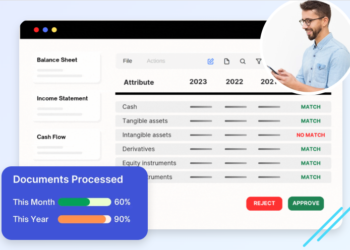Having good food and service quality as the pillars of their business is not enough to sustain the restaurant business of today. Today’s victories are possible if the restaurant business is based on digital changes in interaction, and ERP technologies are leaders in this shift. ERP programs tailored to restaurants and specialized development services provide all-inclusive solutions that improve customer satisfaction, expedite processes, and increase profitability. This thorough post will show why it is essential to your restaurant’s expansion and long-term viability to invest in ERP application development and customized ERP services.
The Changing Industry Landscape of Restaurants:
Due to shifting customer tastes, technology breakthroughs, and operational difficulties, the restaurant business has seen substantial changes recently. To manage the complexity of contemporary restaurant operations, traditional management techniques are no longer enough. Every facet of restaurant administration, from inventory control to client relations, necessitates advanced technical solutions. With its comprehensive solutions that tackle many issues and give businesses a competitive edge in the market, ERP systems have become the foundation of prosperous restaurant operations.
Resource Management and Operations Simplified:
Implementing a bespoke ERP machine has numerous blessings, chief among them being the substantial increase in operational performance. From front-of-house offerings to kitchen management, restaurant-particular ERP solutions integrate all operational sides right into a unified machine. By reducing manual involvement and removing data silos, this integration speeds up service delivery and lowers operating expenses. The system can automate buy orders, track inventory levels in real-time, and keep an eye on food prices, all of which help to maximize resource efficiency and reduce waste. In addition to increasing productivity, such streamlined operations also play a major role in lowering costs and raising profitability.
Customer Experience Improvement and Customer Loyalty:
Indeed, quality customer service is essential in the operation of restaurants. Most of the contemporary ERPs include customer relationship management (CRM) modules, they are restaurant-specific, however. These modules help keep customers’ preferences, order status, and feedback records as a basis for customized services. The system will help manage the reservations, processing of the online orders, and customer database to bring consistency across the dining experience. Automated marketing campaigns coupled with integrated loyalty programs result in better customer relations also increasing customer volume and repeat business.
Physical constraint:
However, that restaurant owners need to closely scrutinize several factors when it comes to net, including labor, overhead, and food. An altered erp system for restaurant provides you with detailed tools to manage your financial data and keep you informed based on real-time information. The company’s much-needed basic sales figures, profit and cost margins for daily, weekly, monthly, or even annual sales, and integrated financial management reports. Thus, with such a level of financial control, it is easy to sustain proper profit margins or, identify where some extra costs might not be necessary or improve the price strategies. Also, the inaccuracies in accountings are reduced, and tax compliance is ensured when the financial operation is automated.
Supply Chain Management and Inventory Management:
This is because to cut costs the restaurants have to ensure they have good supply chain management returns while at the same time serving quality meals. It is for this reason that ERP systems have superior functionality of inventory control which assists in supply chain management. Apart from providing information about the available stock and quantity used up by different recipes, the system can place orders when certain quantities of stock are reached. By avoiding overstocking perishable goods, this automation guarantees that you never run out of necessary ingredients. To save a lot of money, the system can also compare pricing, evaluate supplier performance, and assist in negotiating better terms with vendors.
Information-Based Decision Making:
Contemporary ERP structures include strong analytics skills that turn unprocessed records into useful insights. Rather than relying completely on gut feeling, those analytical tools assist eating place managers and proprietors in making nicely knowledgeable judgments. Sales trends, purchaser conduct, peak hours, and seasonal tendencies may all be analyzed through the machine, which offers useful statistics for advertising initiatives, staffing choices, and menu planning. Making choices based totally on statistics facilitates minimizing risks, streamlining tactics, and locating new increased possibilities.
Employee Handling and Output:
Restaurant staff management, including scheduling, performance evaluation, and payroll processing, can be challenging. Comprehensive human resource management modules that optimize these procedures are a feature of ERP solutions designed specifically for restaurants. Staff scheduling, payroll management, working hour tracking, and performance monitoring are all handled by the system. In addition to guaranteeing ideal worker numbers during peak hours, this automation lessens administrative effort. To help uphold service quality standards, the system can also keep track of personnel credentials and training requirements.
By tracking food safety procedures, automating documentation, and keeping thorough records of every activity, ERP systems aid in maintaining compliance. The system can keep track of ingredient expiration dates, monitor food storage temperatures, and make sure correct handling practices are followed. High-quality standards are maintained throughout the operation and the danger of breaches is decreased with this methodical approach to compliance.
A Look at ROI and Investment Considerations:
Despite the substantial upfront expenses associated with erp development services, the long-term advantages greatly exceed the disadvantages. The secret is to pick a solution that fits the unique requirements and expansion goals of your business. When choosing an ERP solution, take into account elements like scalability, vendor support, integration possibilities, and user-friendliness. Within the first year of deployment, an ERP system that is properly integrated usually yields benefits in the form of lower operating expenses, increased revenue, and enhanced efficiency.
Conclusion:
To succeed in the long run, restaurants must now invest in ERP application-development and customized ERP development services. For contemporary restaurant management, the wide range of advantages—from improved customer satisfaction to operational efficiency—make it an essential investment. Restaurants using advanced ERP systems will be in a better position to anticipate changes, satisfy patron demands, and preserve competitive advantages as the market develops. Selecting the appropriate development partner who can provide a solution that propels the expansion and success of your restaurant and who is aware of your unique needs is essential to effective implementation.






